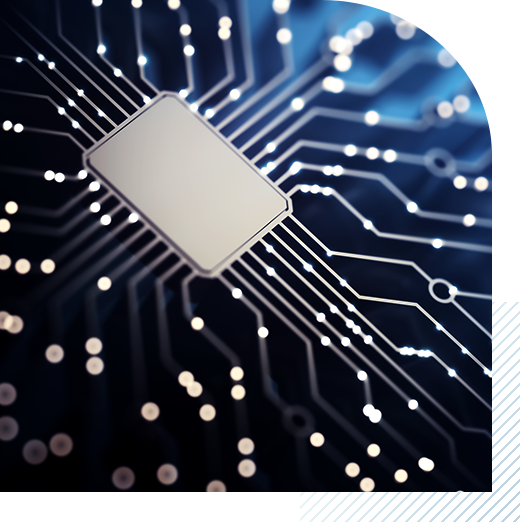
Dept. of Digital Electronic Communication Engineering
Our department provides systematic, in-depth practical knowledge and technology training programs, which can be applied to actual industrial sites, in order to cultivate talented information and telecommunication professionals who can actively respond to the rapidly changing information & communication environment in line with the global information age.
TEL031)467-4909FAX 031)467-4908Location Information & Communication Hall 4F
Course Outline
| Subject | Education Contents |
|---|---|
| Design & Application of RFID 1st semester of Year 4: 5 credits / 6 hours |
This class is designed to enable students to master the basic theory of RFID and conduct RFID reader & tag antenna design and analysis using the latest tools. It also aims to cultivate the students’ basic and practical ability in the RFID field through practical classes on data transfer methods among others according to RFID tagging. |
| Practical mitigation and protection technology for EMI/EMC 1st semester of Year 4: 3 credits / 4 hours |
This class is designed to improve students’ practical business skills concerning EMI/EMC countermeasure technologies through experimental and practical sessions using EMI/EMC measuring instruments. It covers measurement methods and transfer routes of electromagnetic noise, methods of analyzing the characteristics of and measuring electromagnetic noise, measurement of the characteristics of alternative parts, practical training in the use of countermeasure technology, international standardization trends and methods of measurement. |
| Chipset Design 1st semester of Year 4: 5 credits / 6 hours |
Recently, various chipset design technologies have been proposed due to the rapid development of the integrated circuit design environment. Thus, this class teaches students concepts and approaches related to chipset design technologies. Also, to maximize the students’ practical ability in the field of application, this class consists of an actual project to design an analog & digital chipset and a mixed chipset, and to acquire the design skills for special and general purposes. Students will also learn about chipset design and verification using various target boards. |
| An Introduction to Marketing 1st semester of Year 4: 2 credits / 2 hours |
This class aims to cultivate the students’ marketing-oriented thinking such as the cost concept, technical sales, etc. other than technology at the industrial site. By teaching the outlines (reports, spread sheets, power point, etc.) required in office computerization, etc. under the concept of adaptive environment of various industrial sites,this class aims to cultivate the students’ basic professional knowledge according to industry requirements. |
| Application of Home & Ubiquitous Sensor Network 2nd semester of Year 4: 5 credits / 6 hours |
This class aims to cultivate the students’ ability to conduct wireless control of various sensors such as illumination, gas, and temperature sensors using an AVR microprocessor, to perform the wireless integration of home electronic devices, to conduct wireless control to a sensor whatever the location, and to control them using wireless devices (cell phone, ODA) or a computer from the outside by performing a network concept study and practice through sensor nodes and ZeeBee communication. |
| DSP Application 2nd semester of Year 4: 5 credits / 6 hours |
This class educates students on digital signal processing theory, such as the relationship between continuous and discrete signals, the analysis of digital signals in the time & frequency domain, finite/infinite response systems, digital filter design, Fast Fourier Transform algorithm, etc. It also aims to cultivate students’ ability to consider and use the field that uses DSP processors, etc. for the design and testing of communication systems which are becoming increasingly digitalized. |
| Practical for PCB Design 2nd semester of Year 4: 5 credits / 6 hours |
This class aims to help students to consider various circuit design specifications used in the industry and to perform practical analysis and writing of various schematics. Students will learn various design techniques and principles related to PCB design and also conduct practical sample production processing projects in order to cultivate their practical ability in PCD design & production at industrial sites, as well as to train themselves as a professional engineer capable of using their acquired skills immediately at worksites. |
Curriculum Table
| Major Category | Year 3 | Year 4 | Total | ||||||||||
|---|---|---|---|---|---|---|---|---|---|---|---|---|---|
| 1st semester | 2st semester | 1st semester | 2st semester | Credit | Lecture | Practice | |||||||
| Credit | Hour | Credit | Hour | Credit | Hour | Credit | Hour | ||||||
| General education | Compulsory | ||||||||||||
| Optional | |||||||||||||
| Subtotal | |||||||||||||
| Major | Compulsory | An Introduction to Marketing | 2 | 2 | 2 | 2 | |||||||
| Subtotal | 2 | 2 | 2 | 2 | |||||||||
| Optional | Communication Signal Processing | 5 | 6 | 5 | 2 | 4 | |||||||
| Practical mitigation and protection technology for EMI/EMC | 5 | 6 | 5 | 2 | 4 | ||||||||
| Digital Circuit Design | 3 | 4 | 3 | 1 | 3 | ||||||||
| Chipset Design | 5 | 6 | 5 | 2 | 4 | ||||||||
| Signals and Systems | 5 | 6 | 5 | 2 | 4 | ||||||||
| Practical for PCB Design | 5 | 6 | 5 | 2 | 4 | ||||||||
| Subtotal | |||||||||||||
| Teaching subject credits (Hours) | |||||||||||||
| Liberal arts subject credits (Hours) | 2 | 2 | 2 | 2 | |||||||||
| Major subject credits (Hours) | 13 | 16 | 15 | 18 | 28 | 11 | 23 | ||||||
| Total credits (Hours) | 15 | 18 | 15 | 18 | 30 | 13 | 23 | ||||||